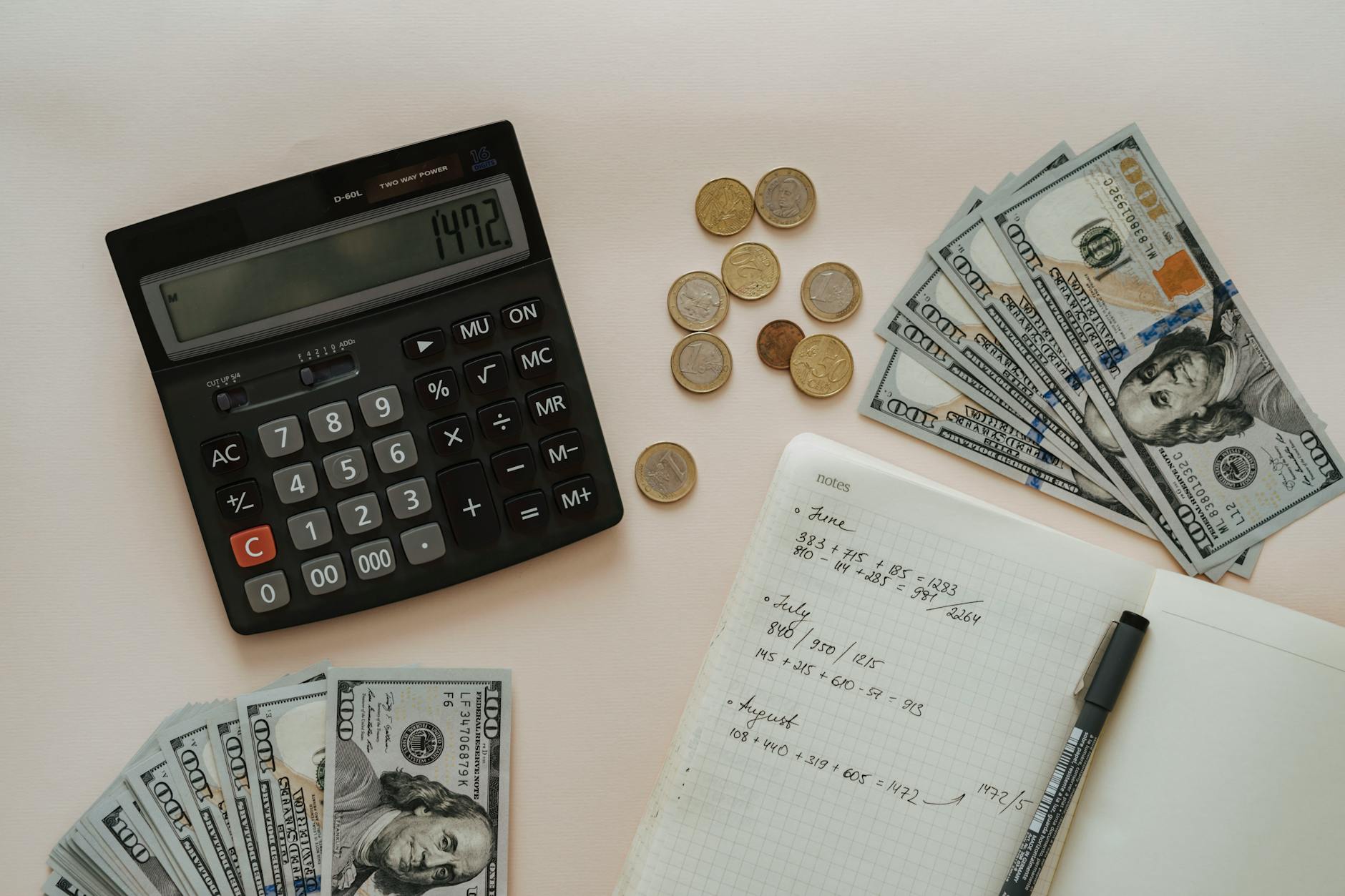Understanding PCP Finance
Basics of PCP
Personal Contract Purchase (PCP) is a popular and flexible car finance option in the UK. It allows you to drive a new or used car for a number of years with lower monthly payments compared to other financing methods. At the end of the contract, you have several options: return the car, pay a final balloon payment to keep the car, or use any positive equity towards a new car (NerdWallet).
PCP payments are calculated based on several factors, including the car’s value at the start and end of the contract, the length of the agreement, and the annual mileage limit (ChooseMyCar). For a detailed breakdown, you can use a pcp calculator.
Advantages of PCP
PCP finance offers several advantages that make it a popular choice among car buyers:
- Lower Monthly Payments: Compared to Hire Purchase (HP), PCP typically has lower monthly payments because you are not paying off the full value of the car.
- Flexibility at Contract End: At the end of the agreement, you have multiple options, including returning the car, paying a lump sum to keep it, or using the equity towards a new vehicle.
- Access to Newer Models: The lower monthly payments allow you to drive more expensive or newer car models that might be out of reach with other financing options.
- Option to Upgrade: If the car’s value is higher than the Guaranteed Minimum Future Value (GMFV) at the end of the term, you can use the positive equity as a deposit for a new car (Motorpoint).
| Advantage | Description |
|---|---|
| Lower Monthly Payments | Monthly payments are generally lower compared to other finance options. |
| Flexibility at Contract End | Multiple options at the end of the contract, including keeping the car or upgrading to a new one. |
| Access to Newer Models | Drive more expensive or newer car models with lower monthly costs. |
| Option to Upgrade | Use positive equity towards a new car purchase or finance agreement. |
Drawbacks of PCP
While PCP offers numerous benefits, there are also some drawbacks to consider:
- Final Balloon Payment: The optional final payment (balloon payment) can be significant, often amounting to several thousand pounds.
- Mileage Limits: PCP agreements typically include an annual mileage limit. Exceeding this limit can result in additional charges.
- Condition of the Car: The car must be returned in good condition. Any excessive wear and tear could lead to extra costs.
- Negative Equity Risk: If the car’s value is less than the GMFV, you may owe more than the car is worth at the end of the term.
For those who have experienced issues with their PCP agreements or suspect they were mis-sold, understanding these drawbacks is crucial. You may want to explore your options for compensation with a solicitor (pcp car finance providers).
| Drawback | Description |
|---|---|
| Final Balloon Payment | Significant final payment required to keep the car. |
| Mileage Limits | Annual mileage limits with additional charges for exceeding them. |
| Condition of the Car | Car must be returned in good condition to avoid extra costs. |
| Negative Equity Risk | Potential to owe more than the car’s worth at the end of the term. |
To learn more about the potential issues and how to manage them, visit our articles on pcp agreement and pcp car finance reviews.
Ending a PCP Contract
When your Personal Contract Purchase (PCP) agreement comes to an end, you have several options to consider. Understanding these options and their implications can help you make the best financial decision for your situation.
Options at Contract End
At the end of your PCP contract, you typically have three options:
- Return the Car: You can return the car to the lender without any further financial obligations, provided the car is in good condition and within the agreed mileage limits.
- Make the Optional Final Payment: Also known as the balloon payment, this payment allows you to purchase the car outright and become the legal owner.
- Trade-In for a New Deal: You can use any equity in the car towards a new PCP contract, effectively trading in your current car for a new one.
For more information on how these options compare to other financing methods, check out our article on pcp vs hp.
Settling PCP Early
If you decide to settle your PCP agreement early, there are a few steps you need to follow. First, contact your lender and request a settlement figure. This figure includes the outstanding loan balance and any additional fees, such as the balloon payment (Cinch).
Upon receiving the settlement figure, you will have 14 days to make the payment. It’s important to note that additional payments towards the loan can impact the final settlement figure. Settling early allows you to avoid the interest that would accrue over the remaining term of the agreement, potentially saving you money (Cinch). However, be aware of any early termination or administrative fees that may apply.
Impact of Settlement Figure
The settlement figure you receive from your lender is crucial in determining your financial obligations. One key factor to consider is the potential for negative equity. This occurs when the car’s value is less than the settlement figure due to depreciation. In such cases, you may need to cover the difference personally, which can impact your ability to use the car’s equity as a deposit for your next finance deal.
| Scenario | Car Value (£) | Settlement Figure (£) | Equity (£) |
|---|---|---|---|
| Positive Equity | 12,000 | 10,000 | 2,000 |
| Negative Equity | 8,000 | 10,000 | -2,000 |
Understanding the settlement figure’s impact on your finances is essential for making an informed decision. If you’re looking for more detailed information on managing your PCP agreement, you can explore our guide on pcp car finance explained.
By carefully considering your options and the implications of the settlement figure, you can navigate the end of your PCP contract with confidence. For more resources and tools, such as a pcp calculator, visit our site to help you make the best financial decision.
Optional Final Payment in PCP
Calculating the Optional Payment
The optional final payment in a Personal Contract Purchase (PCP) deal, also known as the ‘balloon payment’, is the last amount needed to be paid to take full ownership of the car. This payment is determined by the car finance provider based on the market value and an estimate of how the value of other cars has depreciated. The final payment is a fixed cost, irrespective of the actual depreciation of the car’s value.
Factors Influencing Final Payment
Several factors can influence the amount of the optional final payment in a PCP car finance deal:
- Length of the Finance Contract: A longer contract often results in a lower final payment due to extended depreciation.
- Annual Mileage Allowance: Higher mileage allowances generally lead to lower final payments, as increased usage accelerates depreciation.
| Factor | Effect on Final Payment |
|---|---|
| Length of Contract | Longer = Lower Payment |
| Annual Mileage Allowance | Higher = Lower Payment |
Benefits of Final Payment
Paying the optional final payment can be beneficial for individuals who wish to keep the car and become its legal owner. This option is ideal for those who have grown attached to their vehicle or see it as financially prudent (Cinch). If you are certain about wanting to keep the car, considering a Hire Purchase (HP) deal might also be a good idea, as it allows for direct ownership without the need for a final balloon payment.
For more information on different car finance options, you can visit our guides on pcp car finance and pcp vs hp. Additionally, using a pcp calculator can help you estimate your final payment and better manage your finances.
Interest Calculation in PCP
Interest on Principal
Understanding how interest is calculated on a Personal Contract Purchase (PCP) agreement is crucial when using a pcp calculator. The interest on the principal remaining each month is calculated using a specific formula. The interest payable at the end of each month is the principal remaining multiplied by the interest rate.
Here’s a simplified example to illustrate:
| Month | Principal Remaining (£) | Interest Rate (%) | Interest Payable (£) |
|---|---|---|---|
| 1 | 13,599 | 3.5 | 39.20 |
| 2 | 13,559.80 | 3.5 | 39.10 |
| 3 | 13,520.70 | 3.5 | 39.00 |
This table shows how the interest payable decreases as the principal remaining reduces over time. The calculation of interest involves multiplying the remaining principal by the interest rate, and the amount decreases each month as the principal is paid down.
Role of Fees in Interest
In addition to the interest on the principal, various fees can impact the total interest figure in your PCP agreement. These fees include the Credit Facility Fee and the Completion Fee. Such fees are incorporated into the repayment structure and contribute to the final payment amount and interest charges.
| Fee Type | Amount (£) |
|---|---|
| Credit Facility Fee | 200 |
| Completion Fee | 100 |
These fees ensure the accuracy of the interest calculation and are critical to consider when evaluating the total cost of a PCP deal. They can significantly influence the overall interest paid, so it’s essential to factor them in when using a pcp car loan calculator or comparing different pcp deals.
Regulatory Oversight of Interest
Regulatory oversight plays a vital role in ensuring transparency and fairness in the calculation of interest on PCP agreements. In the UK, the Financial Conduct Authority (FCA) oversees financial services and protects consumers. If any discrepancies are found in interest calculations, the FCA intervenes to provide assurance regarding the accuracy of interest charges (Money Stack Exchange).
Under EU regulations, the calculation of interest on a PCP agreement follows the Annual Percentage Rate (APR) as the effective annual rate. Financial service providers are required to present representative examples to consumers, ensuring transparency in financial agreements. This regulatory framework helps protect you from unfair practices and ensures you receive accurate information when using tools like a pcp car finance calculator.
By understanding how interest is calculated and the role of fees, you can make more informed decisions when navigating PCP agreements. For more insights on PCP finance, visit our detailed guide on personal contract purchase (pcp).


